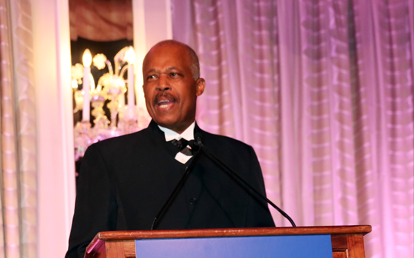
CARIBBEAN LEADERS are calling for a high-level summit with European nations, including Britain, to discuss reparations for slavery, insisting that the issue must be addressed.
Sir Hilary Beckles, chairman of the Caribbean Community (CARICOM) Reparations Commission, said this week that the region will persist in pushing for a summit to develop a reparatory justice model for the Caribbean.
“It is our intention to persist with this strategy of calling for a summit (with European nations) to work through what a reparatory justice model ought to look like in the case of the Caribbean,” Beckles told Reuters this week.
Beckles also expressed the UK’s Labour government, with David Lammy as foreign secretary, would support reparations talks but questions Lammy’s ability to push the issue forward.
“(Lammy) has been a supporter of the (reparations) discourse while he was in opposition,” Beckles said. “The question is whether he would be given a free hand in his government… to take the matter to a higher level.”
No government apology
The renewed calls come after former Prime Minister Rishi Sunak rejected the idea of both issuing a formal apology for Britain’s role in slavery and paying reparations.
During a heated Prime Minister’s Questions session earlier this year, Labour MP Bell Ribeiro-Addy asked Sunak whether he would offer a “full and meaningful apology” for Britain’s historic involvement in slavery and commit to reparatory justice.
The calls for reparations are not new. In the 1990s, former Tottenham MP Bernie Grant, founder of the Africa Reparations Movement, was among the first British MPs to demand an apology for slavery.
Despite his efforts and those of many others, the British government has consistently stopped short of issuing a formal apology, offering instead expressions of “sorrow” and “deep regret.”
Grant had asked for an apology for Britain’s role in slavery in his last PMQ’s before he died in April 2000.
Ribeiro-Addy said: “Since then, Prime Ministers and Heads of State have only ever expressed sorrow and deep regret.
“These are not sentiments that are befitting one of the greatest atrocities in human history.
“So I want to ask the Prime Minister today, if he will do what Bernie Grant asked for all those years ago, what I have asked, what countless others have asked since, and offer a full and meaningful apology for our country’s role in slavery and colonialism and commit to reparatory justice.”
Sunak firmly refused the call asserting that “trying to unpick our history is not the right way forward”.
Instead, the former prime minster emphasised that the government’s focus should be on building a more inclusive and tolerant society rather than addressing historical wrongs through reparations.
CARICOM reparations plan
His refusal to engage with the idea of reparatory justice has sparked further frustration among campaigners and Caribbean leaders, who view this stance as a dismissal of the lasting impact of slavery on their nations.
Caribbean leaders are basing their demands for justice on the Caribbean Community’s (CARICOM), 10-point Reparations Plan which has been hailed by campaigners as a comprehensive framework for reparatory justice.
The plan includes a full formal apology, debt cancellation, repatriation funding, educational programs, and the return of stolen cultural artefacts, alongside compensation for the descendants of enslaved people.


